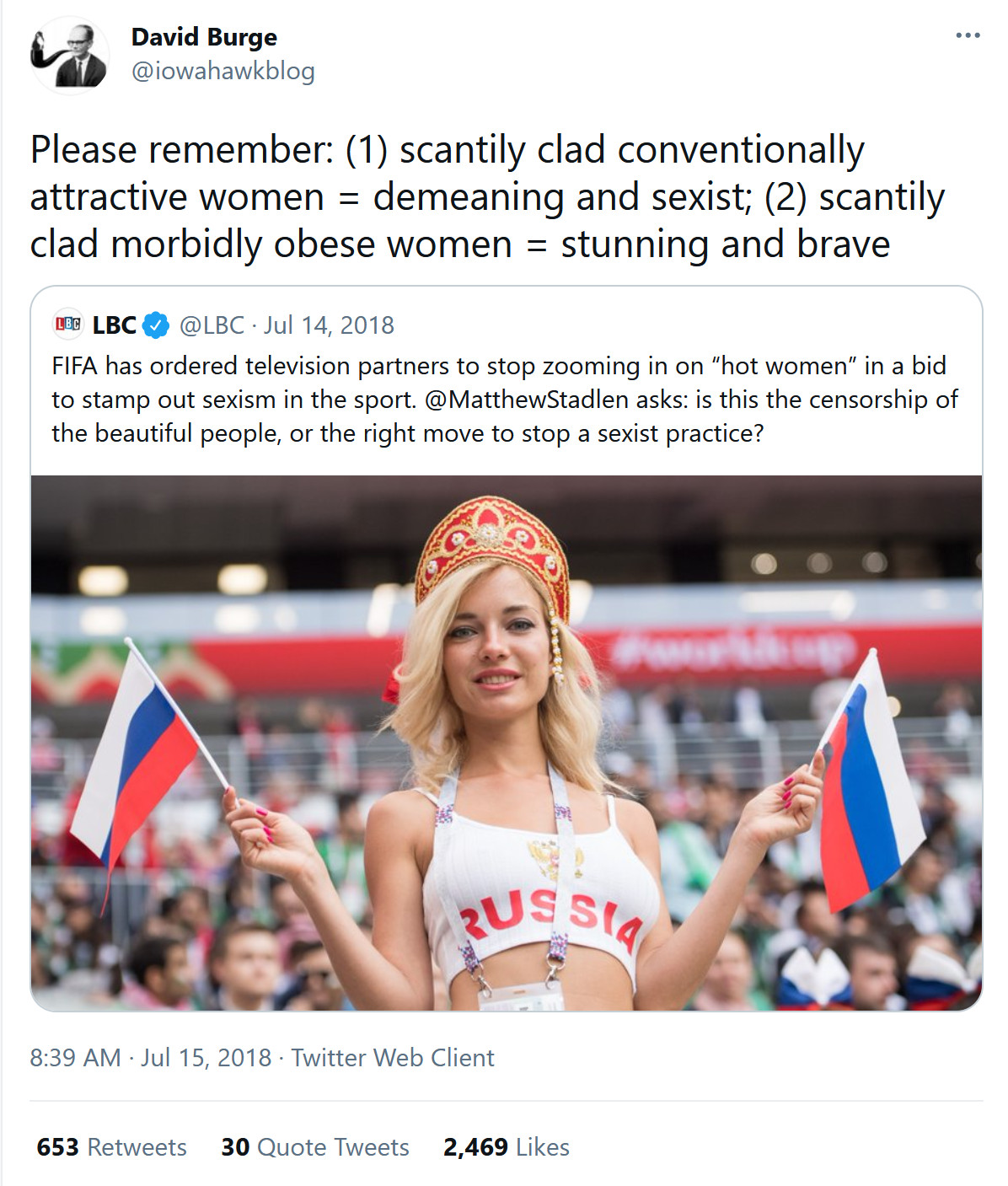Unshrinking: How to Face Fatphobia was written by Kate Manne, a feminist philosophy expert and author of two other books about misogyny and “male privilege,” respectively. Prospect magazine named her one of “the world’s 50 top thinkers” in 2019 alongside Ta-Nehisi Coates, Alexandria Ocasio-Cortez, and Greta Thunberg. She self-identifies as a “small fat,” as opposed to a “large fat,” “superfat,” or “infinifat,” and other terms from the “fat studies” lexicon you didn’t know existed.
Manne could have written an interesting book challenging the conventional wisdom that being fat is bad for your health. Most scientists seem to agree that it is, but if the COVID-19 pandemic taught us anything it’s that so-called scientific experts don’t really know what they’re talking about and are prone to make authoritative pronouncements for purely political reasons. Manne cites other studies that found the relationship between fatness and health to be more “complicated” than we think, and there’s probably some truth to that.
Unshrinking is not that book. It is simply another data point supporting the argument that academic elites have lost their damn minds, starting with the James Baldwin epigraph and trigger warning about “frank descriptions of fatphobia in its intersections with racism, misogyny, ableism, transphobia, etc.” Further reading reveals that fatphobia also intersects with classism, ageism, colorism, homophobia, and anti-Semitism. It’s bigotry all the way down.
Flashback: obesity: Michael Fumento on COVID’s Third Rail.
The very same thinking prevails regarding the obesity-COVID link, notwithstanding that even Saint Anthony Fauci has often made it. Declared a February 2021 article in the International Journal of Disaster Risk Reduction, “. . . questions remain about the quantitative risk of the association between fatness [and COVID].” It uses a common term in shame-shaming literature, “fatphobia.” That means if you disagree, you’re mentally ill.
“‘Unjust And Unethical’ Fatness Being Called A Risk Factor For Coronavirus – Kiwi Fat Studies Scholar,” is the headline of an article in a New Zealand commercial publication. “This insidious move of taking responsibility away from governments and putting it onto individuals [is ridiculous],” insists our scholar. “To say that your health is solely a matter of your own choice and your own personal responsibility, and therefore if you become ill or if you die, it’s your fault [doesn’t make sense].”
Yet shame has always been an effective tool in encouraging good behaviors and discouraging bad ones. I was a critic of the “Environmental Tobacco Smoke” pseudoscience (and was therefore accused of being paid by Big Tobacco), yet I’ll be the first to admit that it apparently served its purpose by shaming smokers in changing the message from “your smoking will kill you” to “your smoking will kill others.” The percentage of Americans smoking plummeted during and after the campaign, and I have no other explanation other than that “Smoking shaming” worked—an outcome I’m happy about, despite the underhanded method.
But smokers were much in the minority, whereas obese and overweight people are very much in the majority. Moreover, given that American journalists aren’t required to be fit like members of the military, there’s no reason to think that American journalists are any less fat than their target audience. They’re writing for themselves.
QED:

